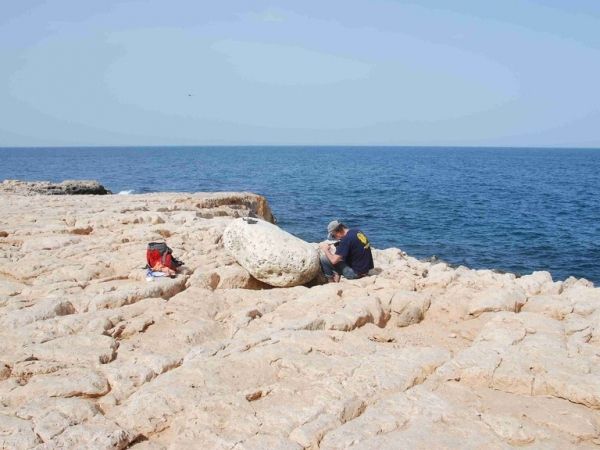15-meter high waves that pushed boulders the weight of a Leopard tank inland: This is more or less how one can imagine the tsunami that hit the coast of today's Sultanate of Oman about 1,000 years ago, as concluded by a recent study by the universities of Bonn, Jena, Freiburg and RWTH Aachen. The findings also show how urgently the region needs a well-functioning early warning system. But even then, coastal residents would have a maximum of 30 minutes to get to safety in a similar catastrophe. The study will be published in the journal "Marine Geology", but is already available online.
Oman lies in the east of the Arabian Peninsula. The coasts of the Sultanate are repeatedly struck by tsunamis, most recently in 2013. Even with the most severe of these in recent times, the Makran event in 1945, the damage remained comparatively low. Back then, the tidal wave reached a height of three meters.
The scientists have now discovered evidence of a tsunami which is likely to have been much more powerful, with waves of up to 15 meters. For this purpose, the researchers from Bonn, Jena and Aachen concentrated their terrain investigations on a 200-kilometer coastal strip in northeastern Oman. "There we identified 41 large boulders, which were apparently carried inland by the force of the water," explains Dr. Gösta Hoffmann from the Institute for Geosciences at the University of Bonn.
Continue reading at University of Bonn
Image via University of Bonn


